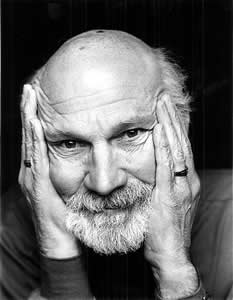Tag: 05 abortion
Excerpts from Hauerwas Reader (Hauerwas)
“Abortion is not some little mistake. Abortion is a reflection of who Americans are: People in the United States are supposed to concentrate on themselves and pursue happiness; thus, they ask themselves, “Why should we bother having children?””
Abortion, Theologically Understood, Taskforce of United Methodists (Hauerwas, 1991)
“I wanted to read that sermon because I suspect that most of you ministers have not preached about abortion. You have not preached about abortion because you have not had the slightest idea about how to do it in a way that would not make everyone in your congregation mad. And the reason that you have not known how to preach a sermon on abortion is that you thought that you would have to take up the terms that are given by the wider society.”
Abortion and Argument by Analogy (1982)
The purpose of this essay is to examine the consistency and coherence of some arguments about abortion. Theological, philosophical, and public policy discussions of abortion are linked by the necessity of understanding the legitimate claims of the fetus on the woman who bears it, as well as on the larger human community. The tools of moral philosophy widely are employed, whether directly or indirectly, to evaluate abortion as one solution to problematic pregnancies. In particular, theologians examining the problem of abortion from the standpoint of normative ethics find it necessary to take into account some of the seminal work in recent moral philosophy. However, the logic of the moral arguments adduced is not always given fully critical attention in either “pro-choice” or “pro-life” positions, whether they be essentially religious, philosophical, or politial in character.
One logical implement used broadly is the analogical argument. Burdensome pregnancy can be compared to other situations in which the duty of one individual to protect the rights of another either is sustained or is modified. Differences in evaluations of the morality of abortion can be clarified and perhaps reduced by probing the ways in which the morally significant features of fetal dependency, and of maternal and societal obligation, are partly revealed yet partly hidden by the analogical mode of moral argument.
The Physician as Political Actor: Late Abortion and the Strictures of Liberal Moral Discourse (Brian Brock, 2006)
By examining the range of factors pressing on medical professionals faced with a decision in a case of late-term abortion, it becomes apparent that the theological resources ruled out of bounds by the standard account can be
considered an essential part of a truly liberating and properly supple moral account of medical decision-making. Close attention to the social, political and legal context of contemporary medicine reveals that the standard account of medical ethics, Principles of Biomedical Ethics by Beauchamp and Childress, despite its universalist aspirations, disempowers rather than empowers moral decision-making by medical professionals.




